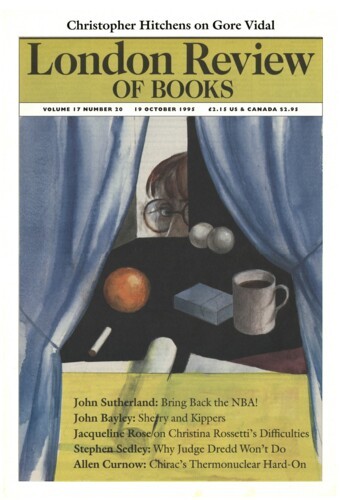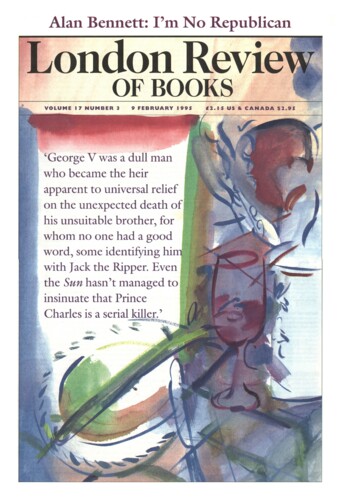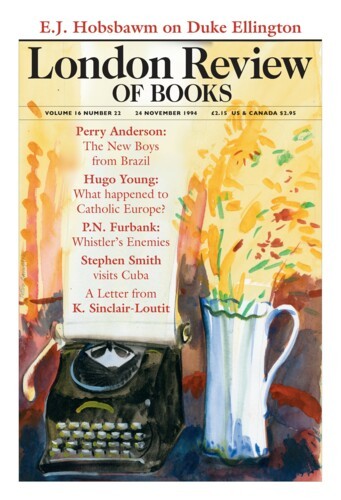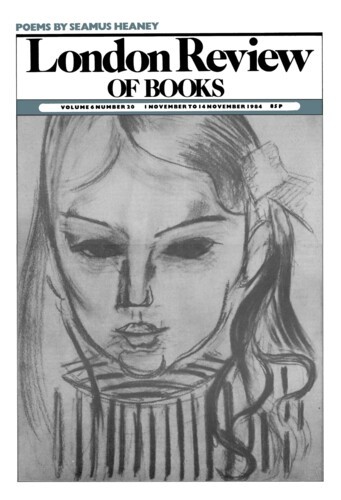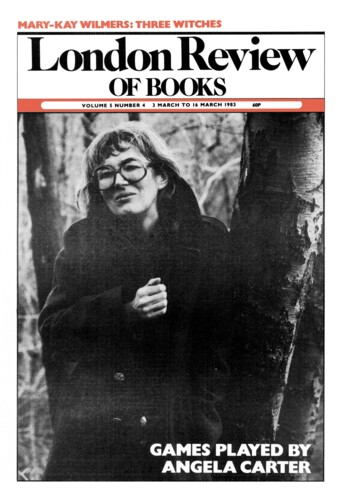When in Bed
David Blackbourn, 19 October 1995
Norbert Elias died in Amsterdam in 1990, shortly after his 93rd birthday. His achievements were recognised only late in life. He was 57 when he first gained a permanent university post, and his work was not widely known until the late Sixties. When the recognition came it was abundant, however: honorary doctorates, prizes and decorations from European governments. Far from basking in this acclaim, Elias stepped up his output, writing more books in his eighties than in all his previous decades put together. He also acquired disciples, especially in the Netherlands and Germany, who tended the flame after 1990 by issuing unfinished fragments and materials, such as Reflections on a Life. This contains a biographical interview first published in Dutch, and Elias’s ‘Notes on a Lifetime’, which originally appeared in German.
